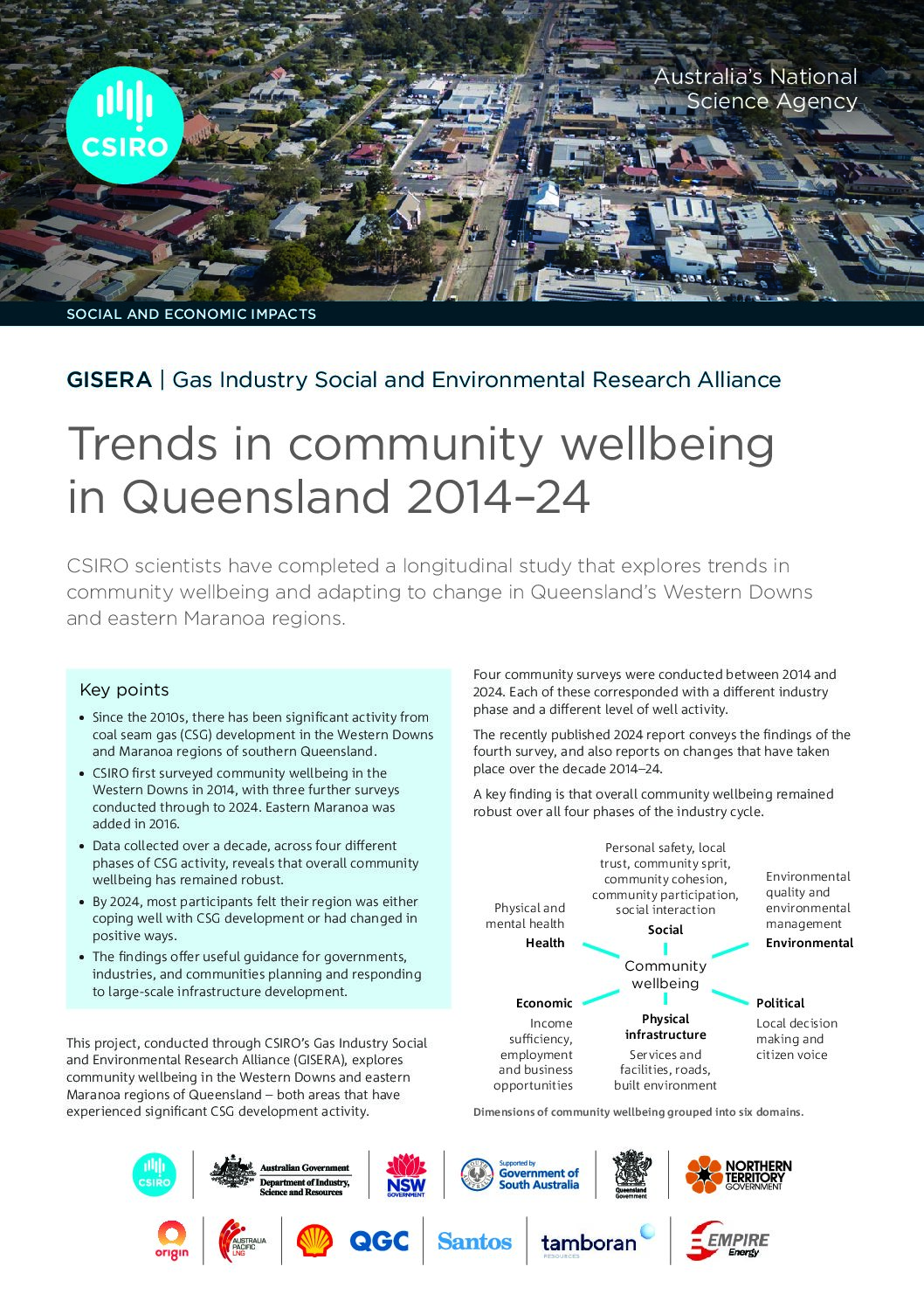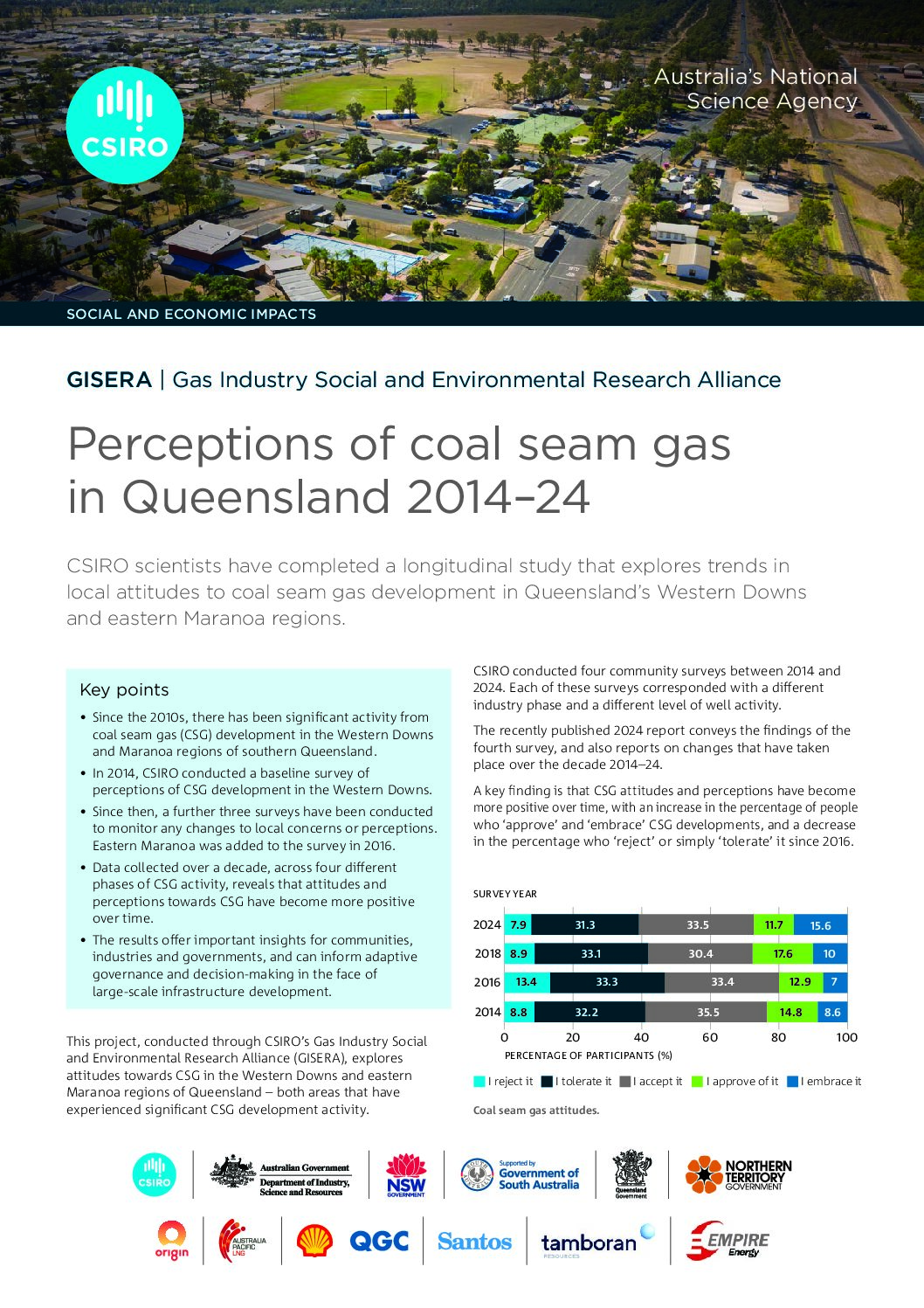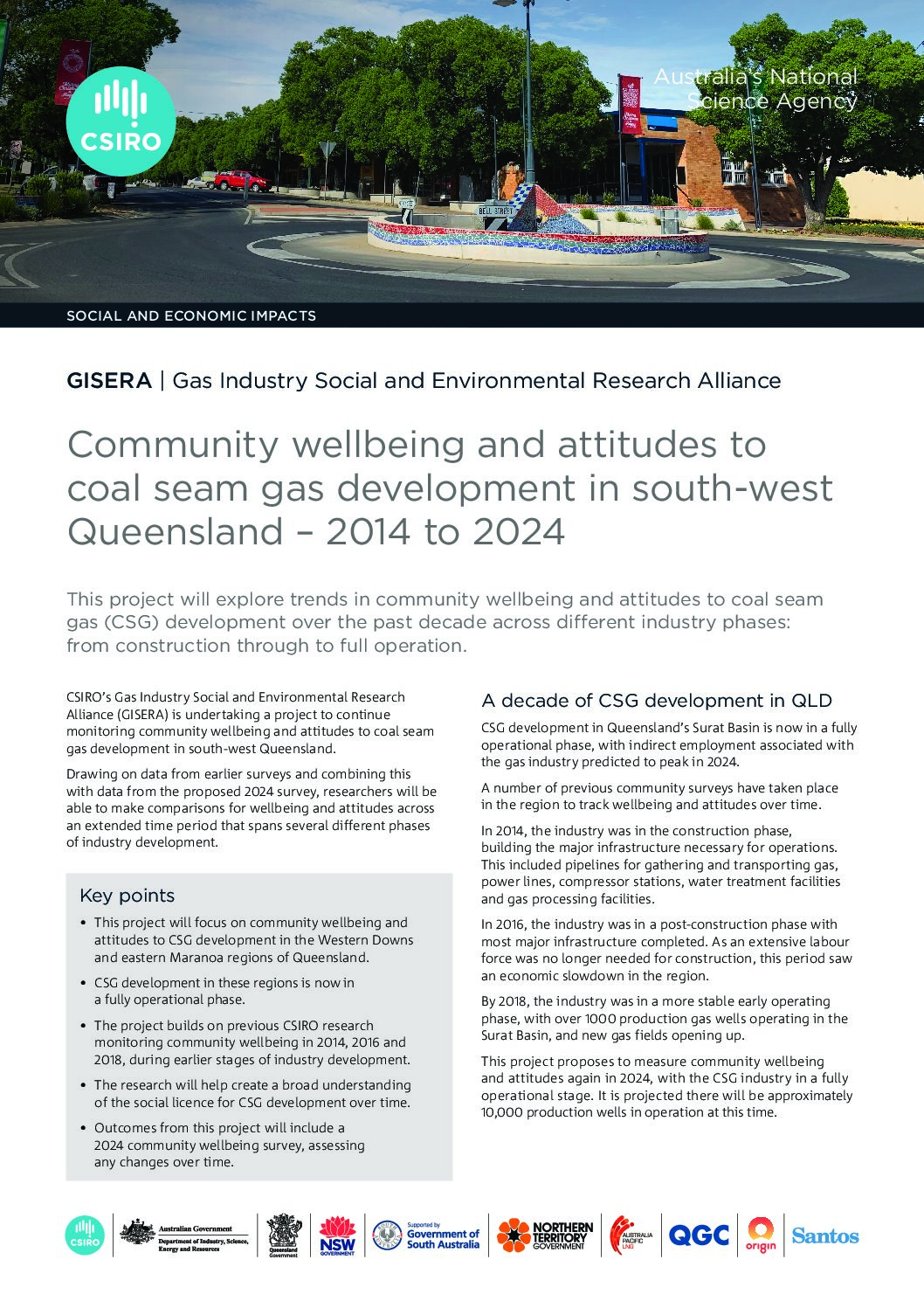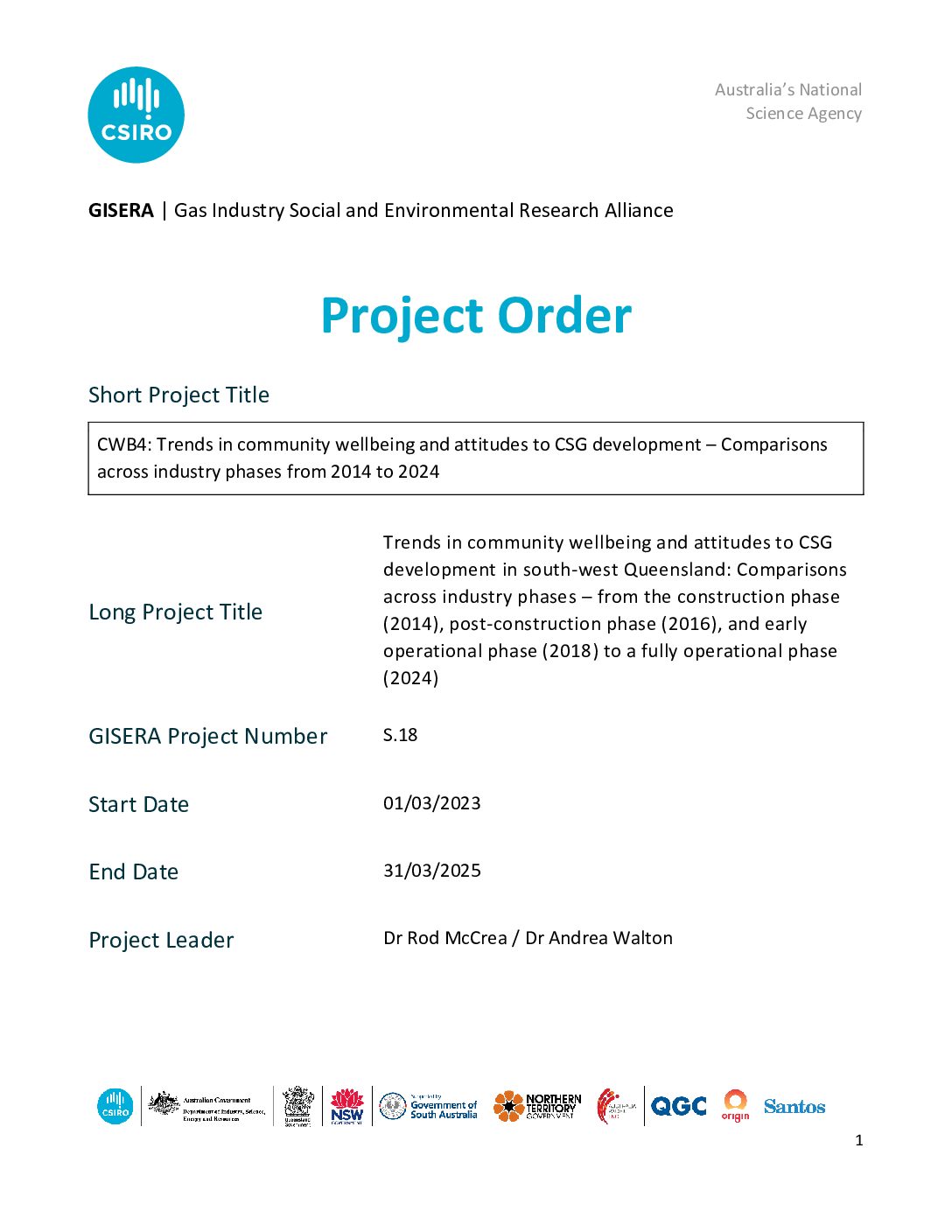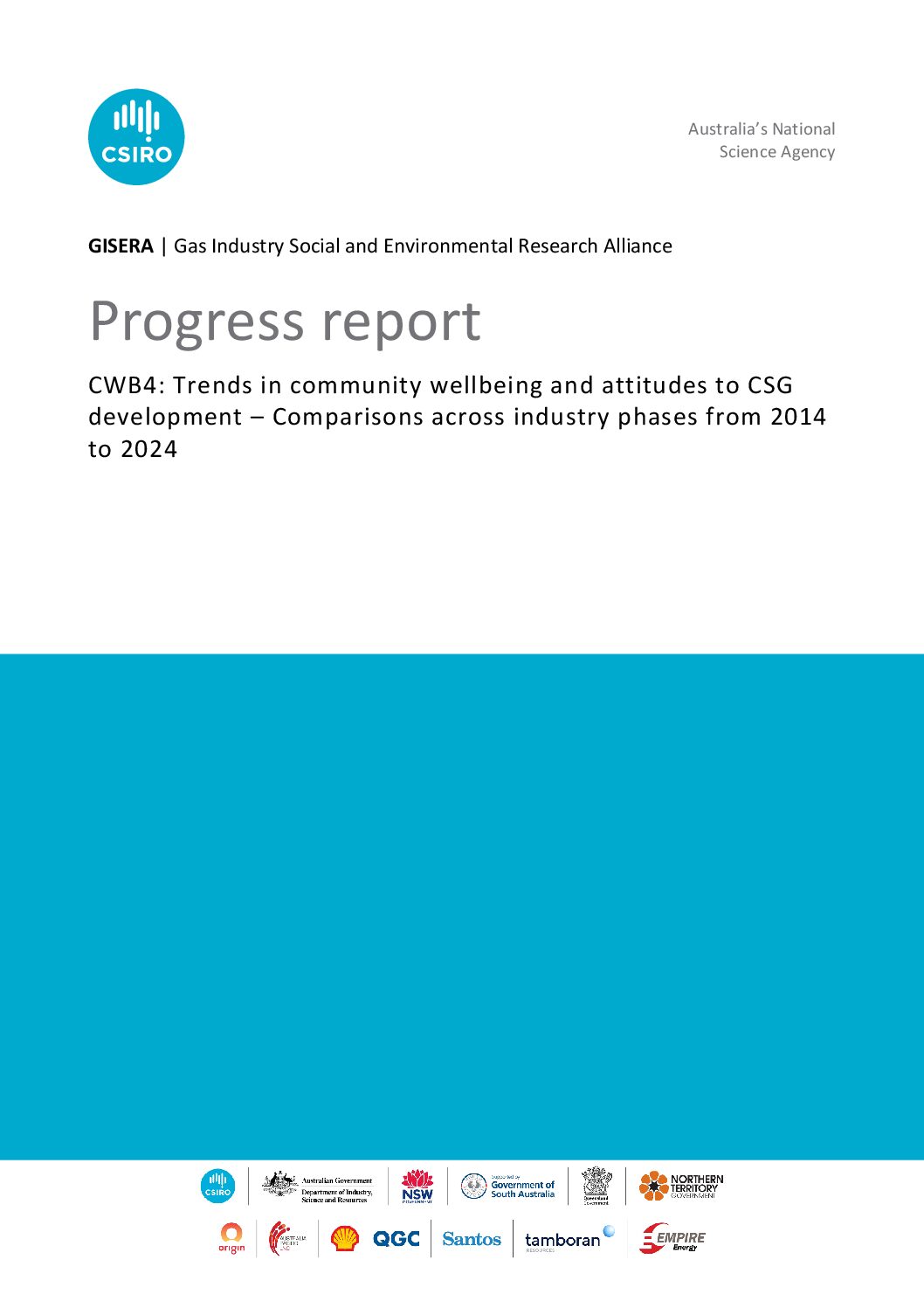Community wellbeing and attitudes to CSG development – 2014 to 2024
Coal seam gas (CSG) development in the Surat Basin has been underway since the 2010’s with considerable activity in the Western Downs and Maranoa regions of southern Queensland.
In 2014 CSIRO conducted a baseline survey of community wellbeing and perceptions of coal seam gas development in the Western Downs and have continued monitoring local concerns and perceptions through subsequent surveys.
This current research report conveys the findings of the fourth survey conducted since 2014 and reports on changes over the decade 2014-to 2024.
The four tranches of data collection also correspond with different industry phases and changes in the number of wells in activity.
The report highlights shifts in community concerns and perceived benefits from CSG development over the decade, how community wellbeing has changed, and how the community sees itself adapting to this industry.
This information improves understanding of community priorities, provides valuable insights for government and industry planning, and informs adaptive governance and decision-making in the face of large-scale infrastructure development.
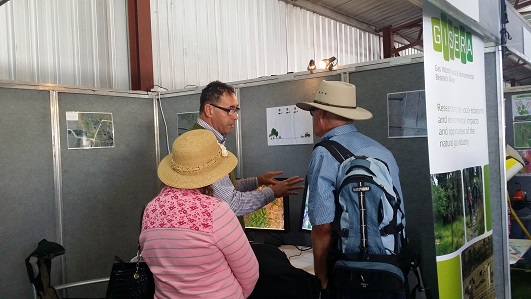
Selected research highlights:
- Overall community wellbeing remained robust over all four phases of the industry cycle.
- Expectations of future community wellbeing improved in 2024 compared to previous years.
- People’s perceptions of how they thought their community was coping and adapting to CSG development improved considerably in 2024 compared to prior survey years.
- In 2024, most participants in the Western Downs (73.3%) and the eastern Maranoa (84.1%) reported their region was ‘adapting to the change’ or ‘changing into something different but better’, with very few participants indicating they thought their community was resisting or not coping (5.5% in Western Downs and zero % in eastern Maranoa).
- CSG attitudes and perceptions have become more positive over time with an increase in the percentage of people who ‘approve’ and ’embrace’ CSG developments and a decrease in the percentage who ‘reject’ or ‘tolerate’ it.
- In 2024, in the Western Downs, 8% of residents indicated they ‘reject’ CSG development in their region (down from a high of 13.4% in 2016), 31% indicated they ‘tolerate it’, 33% ‘accept it’, 12% ‘approve of it’, and 16% ‘embrace it’.
- The eastern Maranoa demonstrated a similar pattern of attitudes in 2024: 5% ‘reject it’, 26% ‘tolerate it’, 33% ‘accept it’, 23% ‘approve of it’, and 12% ‘embrace it’.
- Most people reported moderate levels of knowledge about CSG development, and desire for more information decreased from 2018 to 2024.
- Reported interest in the CSG industry has also decreased over time, similar to information needs. In the Western Downs, interest in the CSG industry was highest in 2014 and lowest in 2024. In 2024, over 40% of people in both the Western Downs and eastern Maranoa now say they ‘never’ or ‘seldom’ think or talk about CSG in their region.
- In these regions in 2024, attitudes towards renewable energy infrastructure like solar and wind farms are more polarised compared to CSG activity.
Research results are based on responses to a 30-minute telephone survey of 601 residents from the Western Downs region and the eastern half of the Maranoa region (401 and 200 residents respectively). Quota sampling and data weighting were used to ensure the sample was representative of the regions on age, gender, location, and subregion.
An online interactive tool allows users to easily compare research data from different survey years, subregions and demographic categories.

